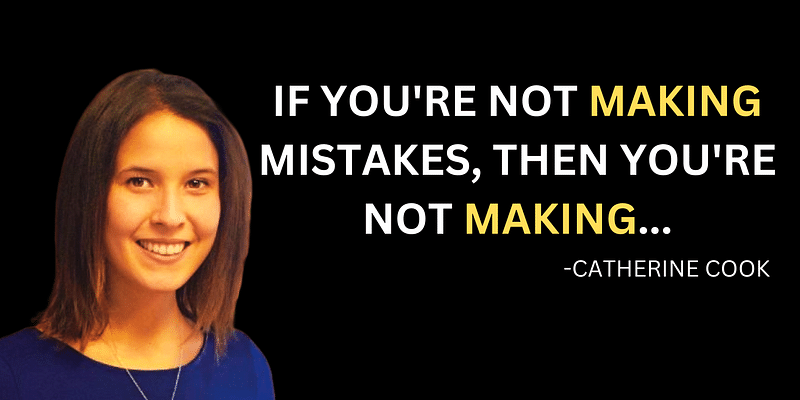
In the journey of personal and professional growth, the words of Catherine Cook, “If you’re not making mistakes, then you’re not making decisions,” resonate profoundly. This quote encapsulates a fundamental truth about the nature of decision-making and learning. It suggests that making mistakes is not just an inevitable part of making decisions, but a necessary one. This article delves into the significance of this perspective and how it can transform our approach to challenges and growth.
Firstly, the fear of making mistakes often holds people back from making decisions. Many are paralysed by the possibility of failure, leading to indecision or a preference for safe, predictable choices. However, Cook’s quote challenges this mindset, encouraging a bold approach to decision-making. It implies that mistakes are not just consequences but are indicators of stepping out of one’s comfort zone, which is essential for growth and innovation.
Secondly, mistakes are invaluable learning opportunities. When a decision leads to an unintended outcome, it provides a wealth of information. Analysing what went wrong and why helps in refining decision-making skills. It’s a process of trial and error that hones judgment and enhances problem-solving abilities. Without making mistakes, one might remain oblivious to certain realities and perspectives.
Moreover, embracing mistakes fosters resilience. The ability to bounce back from errors, to not be disheartened, but rather motivated to try again, is a crucial life skill. This resilience is what differentiates successful individuals and organisations. They do not view mistakes as failures, but as stepping stones to success.
In the context of leadership and management, this quote has profound implications. Leaders who understand the value of mistakes create an environment where employees are not afraid to take risks or innovate. This culture of openness and acceptance of errors as part of the learning process is vital for organisational growth and adaptability.
Furthermore, in the realm of personal development, accepting that mistakes are part of making decisions leads to a more fulfilling life. It encourages individuals to pursue their goals and passions without the crippling fear of failure. It’s about embracing the journey, with all its ups and downs, and understanding that each misstep is a part of the path to success.
Catherine Cook’s insightful words serve as a powerful reminder of the positive role mistakes play in decision-making. By embracing errors as inevitable and essential components of the decision-making process, individuals and organisations can foster a culture of growth, innovation, and resilience.










